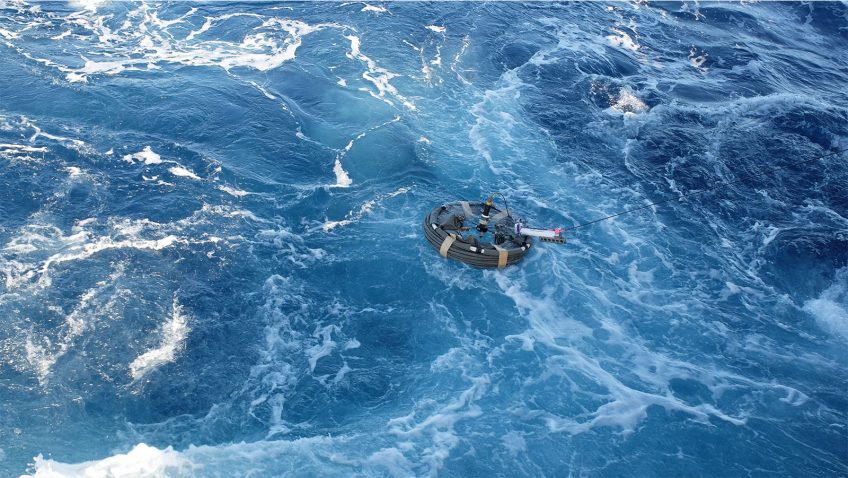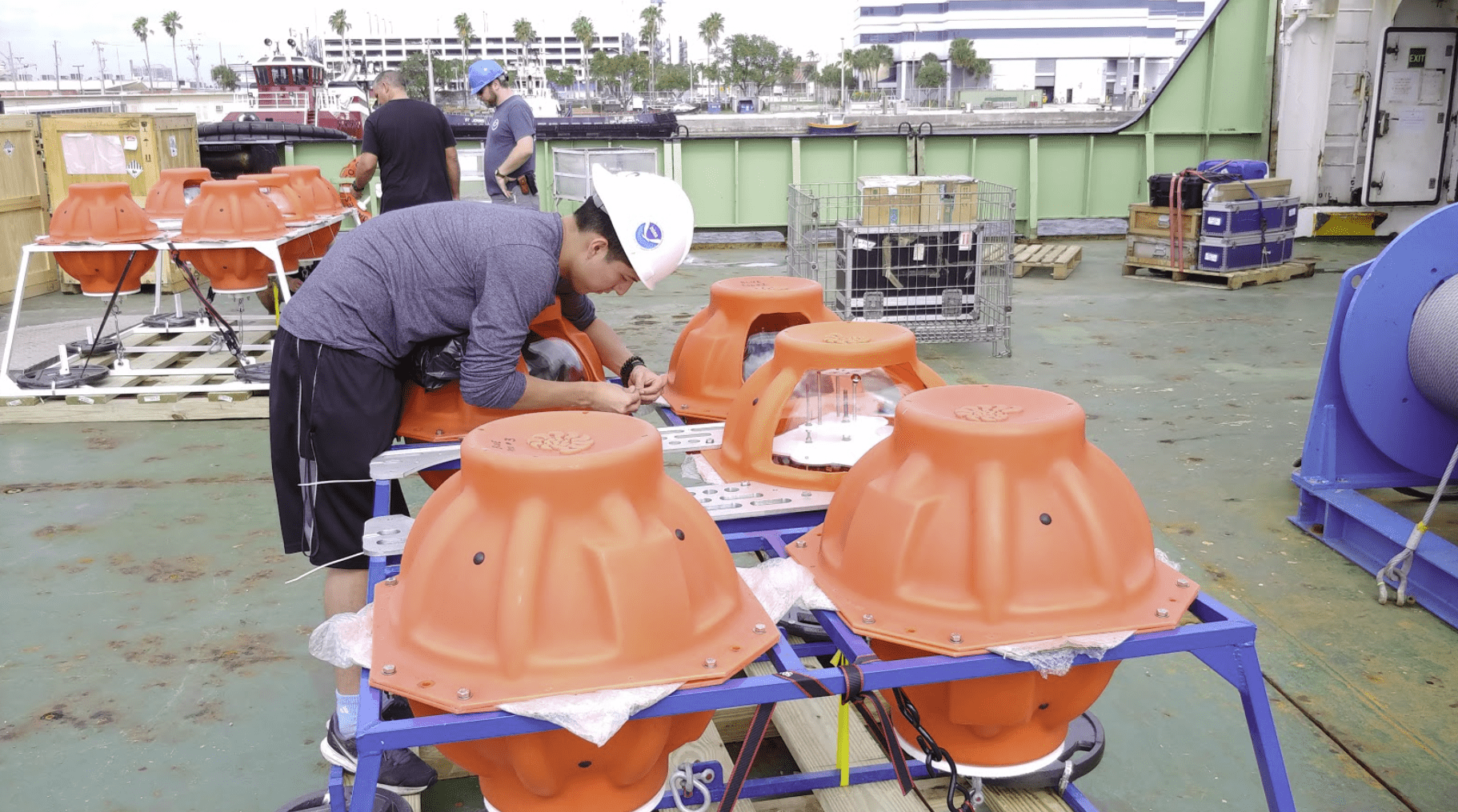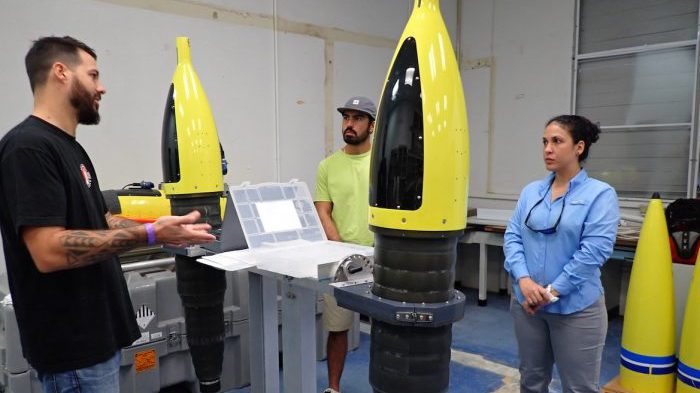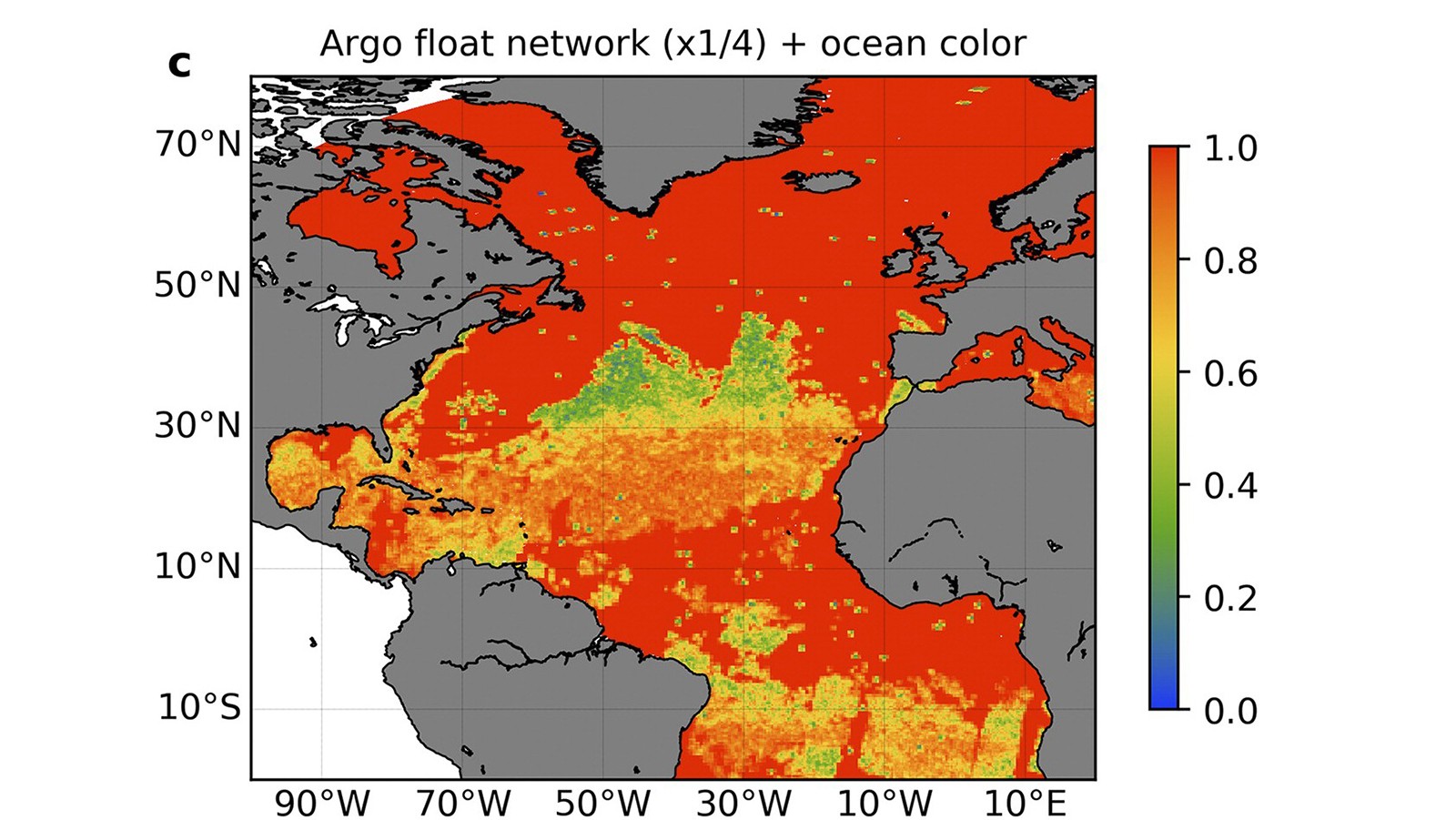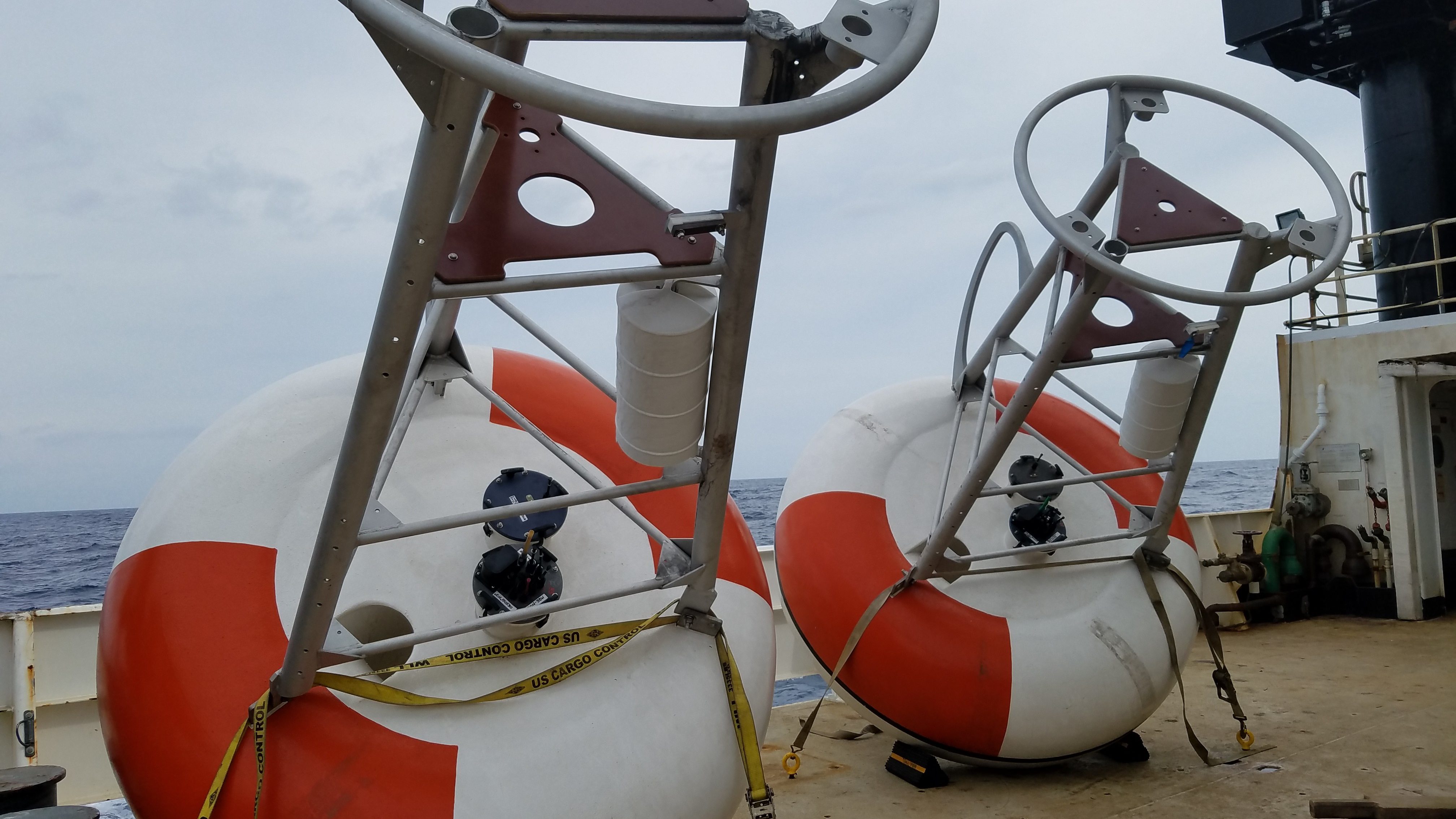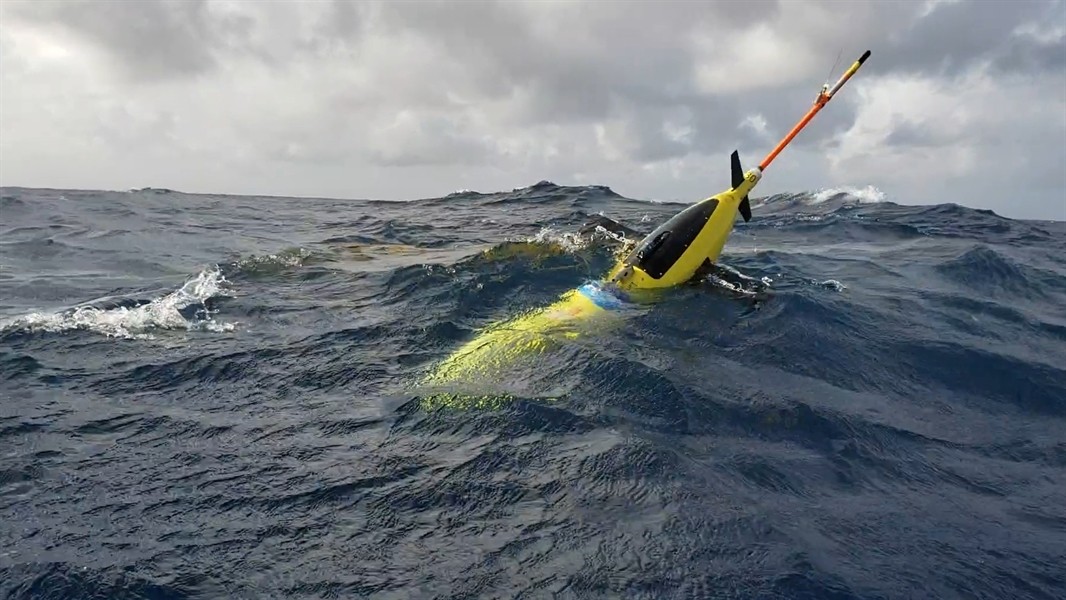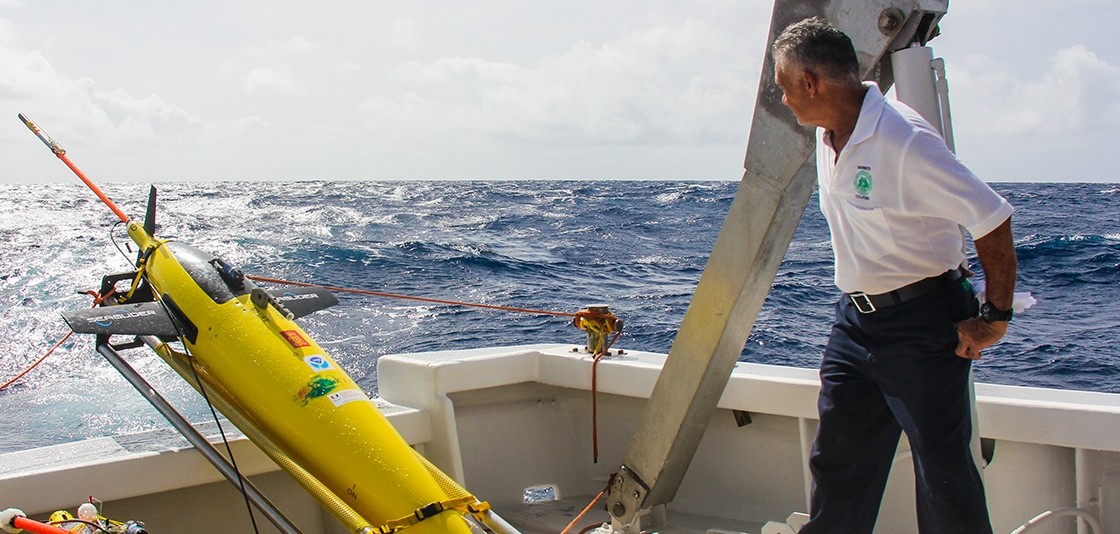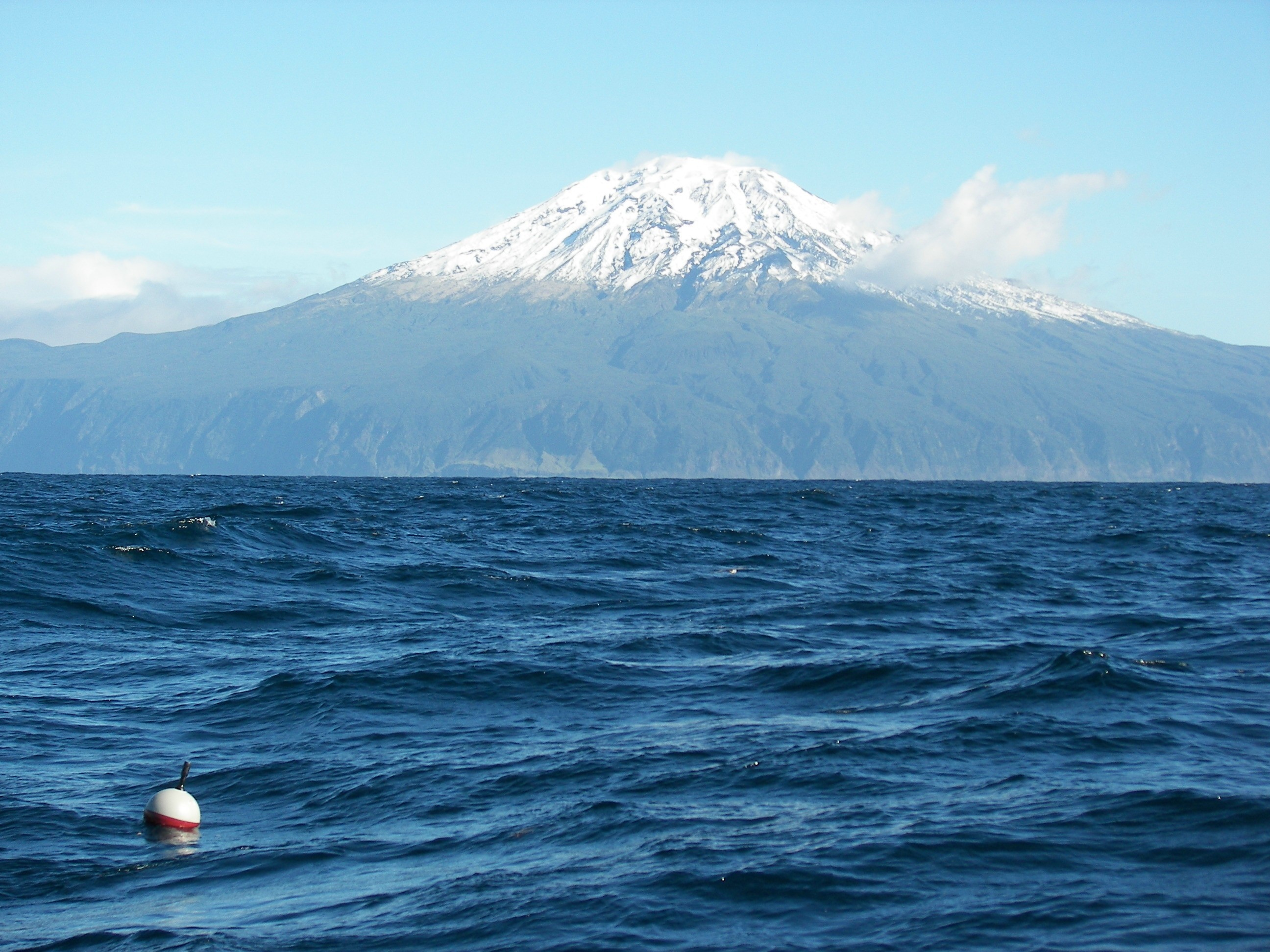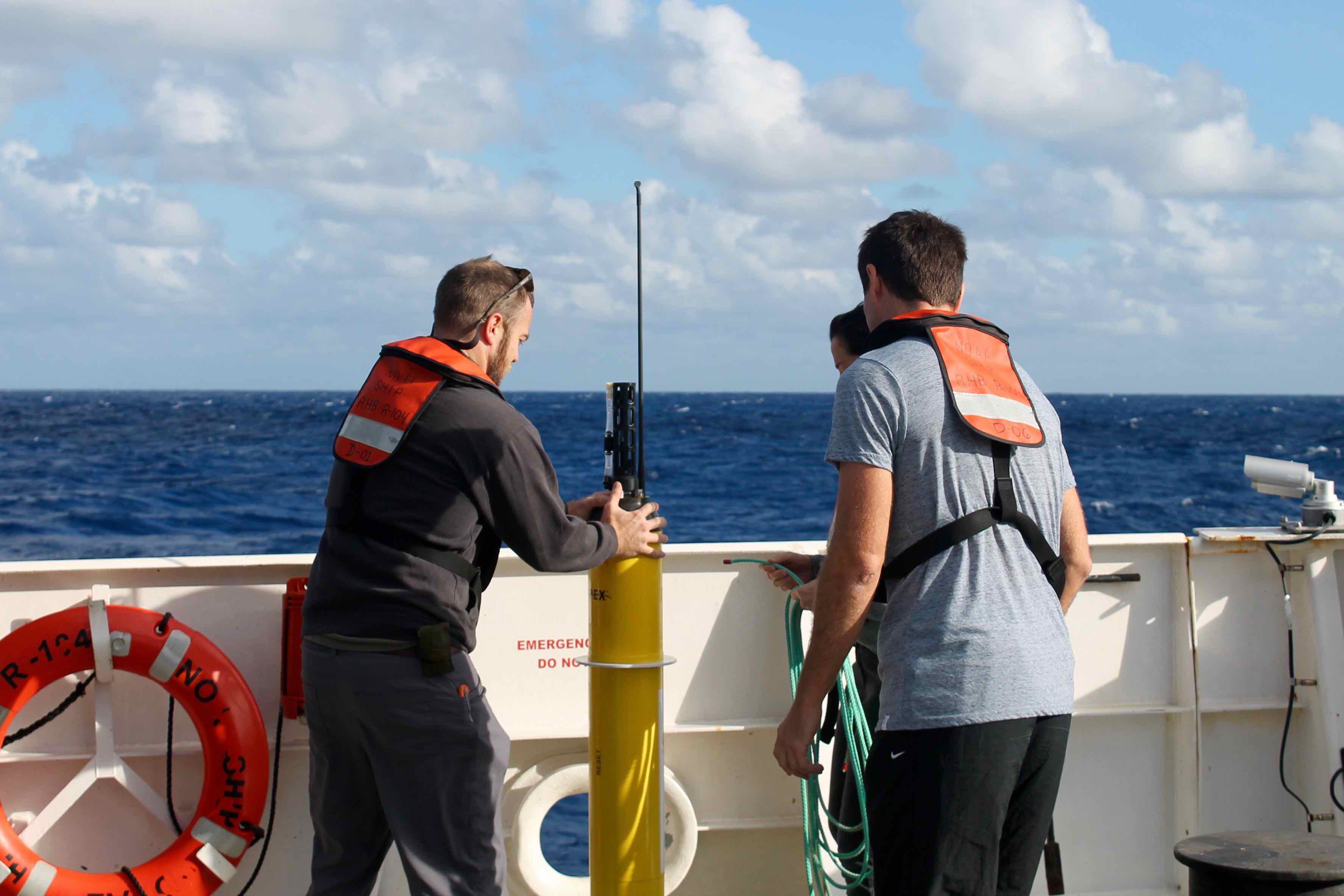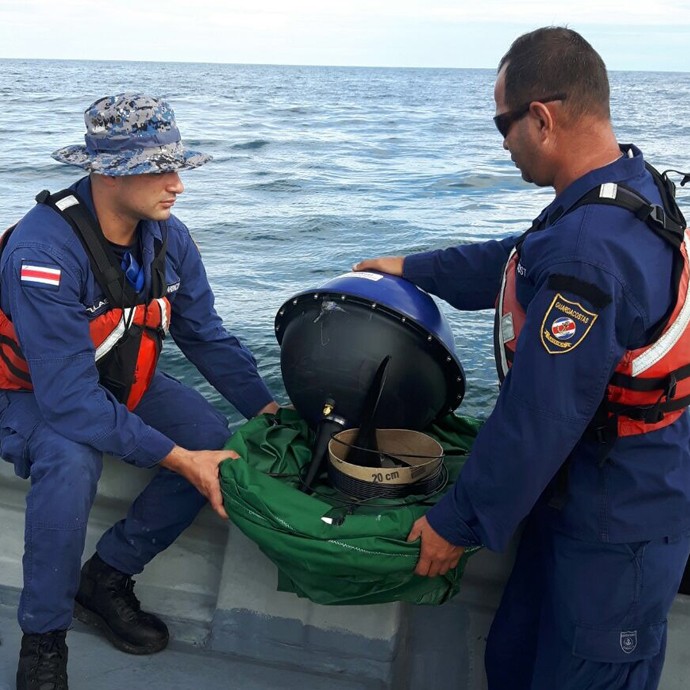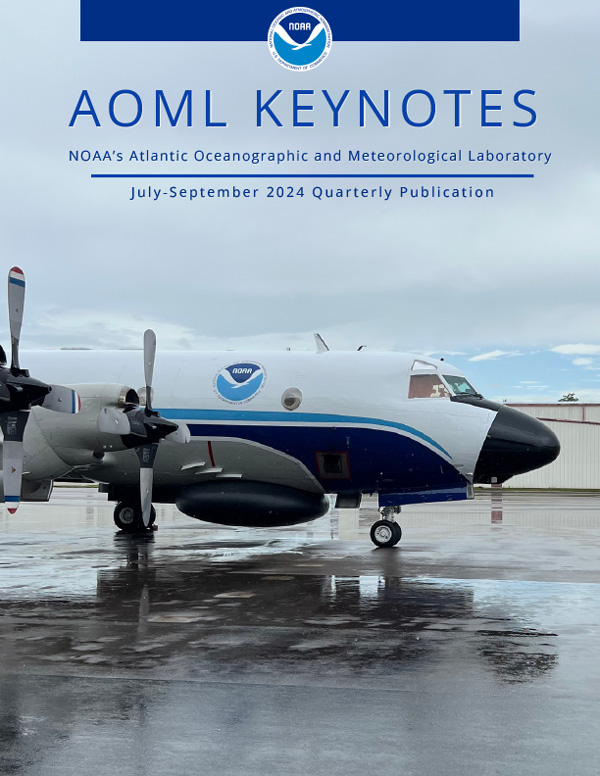AOML Supports the Deployment of Drifting Buoys Ahead of Tropical Storm Isaias
AOML scientists partnered with the U.S. Air Force 53rd Reconnaissance Squadron “Hurricane Hunters” to deploy eight drifting buoys in advance of Tropical Storm Isaias on August 3, 2020 off the Carolina coast, in collaboration with the National Weather Service (NWS), National Hurricane Center (NHC), and Scripps Institution of Oceanography.
